It’s time for trust and security, says Bodil Jönsson and Åke Åkesson in their book Tid för tillit och trygghet (in Swedish only). They mean that our part of the industrial world is so economically well off today that we haven’t really noticed what it has cost us.
Because the prosperity comes with a cost, and we’re not even talking about environmental issues and climate change this week, but about sustainable people. Besides the fact that we have reached financial wealth over the past 150 years, something has happened with our trust and sense of security.
A sense of insufficiency
It might have something to do with our perception of time. We run around like dizzy chickens and can hardly extinguish existing fires before it starts burning somewhere else. Mental illnness, stress, inadequacy and a constant feeling of being many steps behind characterize our time.
On Facebook we get to know how happy and successful everyone else is and we place higher and higher demands on ourselves. For who else than yourself asks you to get up extremely early, run three miles before breakfast and enjoy your own baked sourdough bread in the summer morning backlight while taking a selfie and posting it i all your social media channels? After all, while we work so hard to get a successful life, it’s great if people around us think we are already there.
Value based decisions
What are we doing? Do we even listen to our values any longer, or do we let the Twitter flow decide what is right and wrong? Do we even have time to rest and recover; ask ourselves why we make the choices we make, work with what we work with, live the lives we live? No, we hit the exhaustion wall instead. Then you get to rest, because there is no alternative.
It is not the employers’ fault, at least not only. But employers are dependent on employees doing their jobs, some being creative and others able to lead their colleagues in a sustainable way. So, how do you create conditions for people to develop in the workplace in a sustainable way?
Sustainable people
One thing you may not think of in the first place is that the Sustainability Report can help us along the way. How can a dry and standardized document be of any use at all, you might think. Someone even said the other day that “the only target group for our sustainability report is the auditors”. We certainly do not agree. On the contrary, we want to pay homage to the sustainability report, yes, even lift it to the skies. Not as a document, but as a work and development tool.
The reporting tool that more and more companies use is the Global Reporting Initiative (GRI). In addition to providing structure and comparability, it helps to focus on the issues that are important to your particular business. There is a whole section in there for social sustainability (GRI 400) that includes everything from health and safety to equality and inclusion. You select the parts that are critical to your particular business, which you then measure and report. It provides clarity in important matters for your business and helps select activities that lead to improvements.
Will it help employees to sleep better at night? Does it reduce sick leave and increase the power of innovation? Can the Sustainability Report really make us happier as the headline promises so casually? Maybe, though we might dramatize a bit. Getting started with it at least focuses on what’s essential and helps the company focus. And that’s a good start.
We are happy to tell you more about GRI, materiality and sustainability reporting as the way to effective sustainability work. Get in touch!

